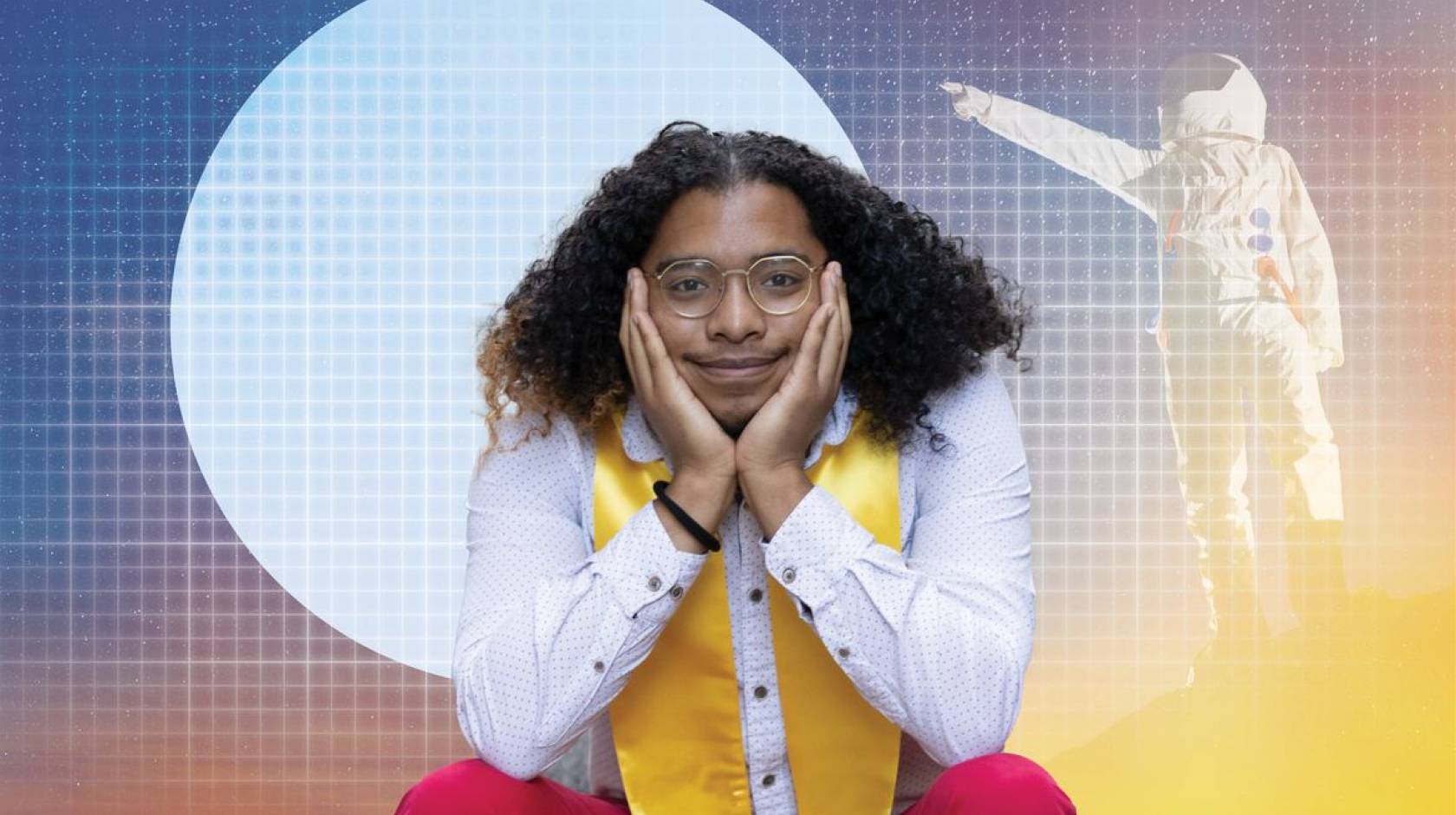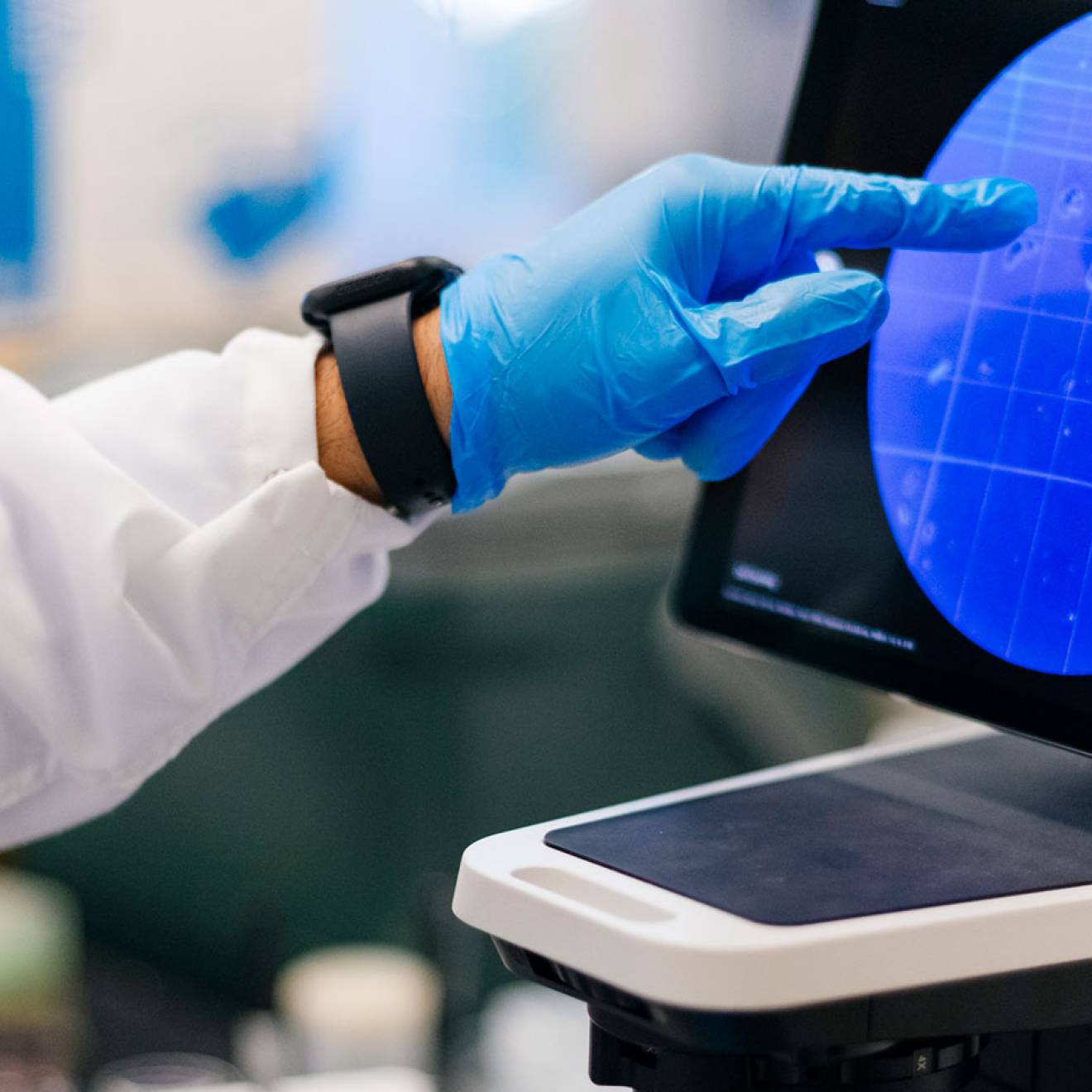Jonathan Riggs, UCLA

Brandon Lazard, who will graduate in June with a master’s in space physics, is all about the love.
Take, for example, his answer when asked about the polarizing Blue Origin space flight.
“I have a lot of complicated feelings about that venture, but the most important part for me is that one of the people aboard was Amanda Nguyen,” he said. “She always wanted to go into space but when her rights were stripped away, she responded by becoming an advocate and activist who helped so many people. The fact that she finally achieved her goal is the highlight we should all be talking about.”
In fact, Lazard shares both Nguyen’s commitment to social justice as well as her dream — he, too, hopes to be an astronaut who makes a difference.
“I want to go to space to be an advocate that space is for everyone, not just the rich or people who look a certain way,” Lazard said. “We need to change the Cold War-era ‘space race’ mode of thinking where countries vie for scientific progress in terms of power.”
Originally from Texas, Lazard was always interested in physics, engineering and astronomy, but wasn’t sure what direction he could actually take until receiving guidance from two unexpected mentors.
He met the first in high school, when he had a chance conversation with David Alexander, a classmate’s father, who happened to be a professor at Rice University. He met the second as an undergraduate at the University of Texas at Austin, when he emailed Anna Tenerani, a professor whose research he admired.
In addition to introducing him to what would become his special focus area — solar physics — and helping to fund him to attend an American Astronomical Society conference, Tenerani also recommended graduate study at UCLA, where she had completed a postdoc. Lazard took her advice and found another mentor at UCLA in Jonathan Aurnou, professor of geophysics and planetary physics, and a place in his Simulated Planetary INteriors Laboratory, known as the SPINLab.
“One of the things I’ve loved most about being at UCLA has been helping with Exploring Your Universe,” Lazard said, referring to the university’s free annual community science fair.
Open to the public and drawing thousands of local K–12 students and their families, the event has long showcased SPINLab’s work, including fluid demonstrations on the weather, climate and ocean.
“As much as I like seeing the reactions of all the kids, especially when they’re asking their parents questions, I think I actually enjoy seeing the parents’ reactions more when they admit they don’t know the answers,” Lazard said. “It’s really rewarding to get to share a deeper understanding of science with them, too.”
Next stop: Fusion propulsion at Helicity Space
A reader with a rekindled spark as well as a neophyte archer, Lazard’s looking forward to the next step of his journey to one day travel beyond Earth — he has accepted a job at the startup Helicity Space, where he will join a team working on an energy-efficient in-space propulsion concept.
“Once you get into space, a lot of chemical rockets rely on propellant that can be used up,” he said. “This particular concept draws on fusion energy to generate propulsion. What’s especially exciting to me is that this is quite scalable, so I could see a future where, depending on the kind of mission, you could have a large enough system to go to Mars or even a different solar system in a fraction of the time it would take with current technology.”
In addition to rockets, remarkable support systems launch people too, and Lazard is glad to thank his mentors at UCLA and beyond, reserving the most gratitude for a very special fellow traveler.
“My partner, Abriana, has been my star throughout the entirety of grad school, especially during a lot of personal challenges and family issues that made it hard for me to juggle everything,” he said. “And she’s done all this while being at her own graduate program at the University of Wisconsin–Madison.”
As he looks ahead to graduation — and up to the stars — Lazard is reminded of a core memory he carries with him to this day and frequently revisits: seeing the movie “Interstellar” as a kid.
“That’s my favorite movie. I watched it again this year when it was re-released in IMAX and cried so much,” he said. “Growing up, I remember watching it over and over — but the message just hits a lot more when you watch it as an adult.”
And the message?
“No matter what you know — or think you know — love is what will get you everywhere,” he said with a smile. “Love transcends time and space.”

